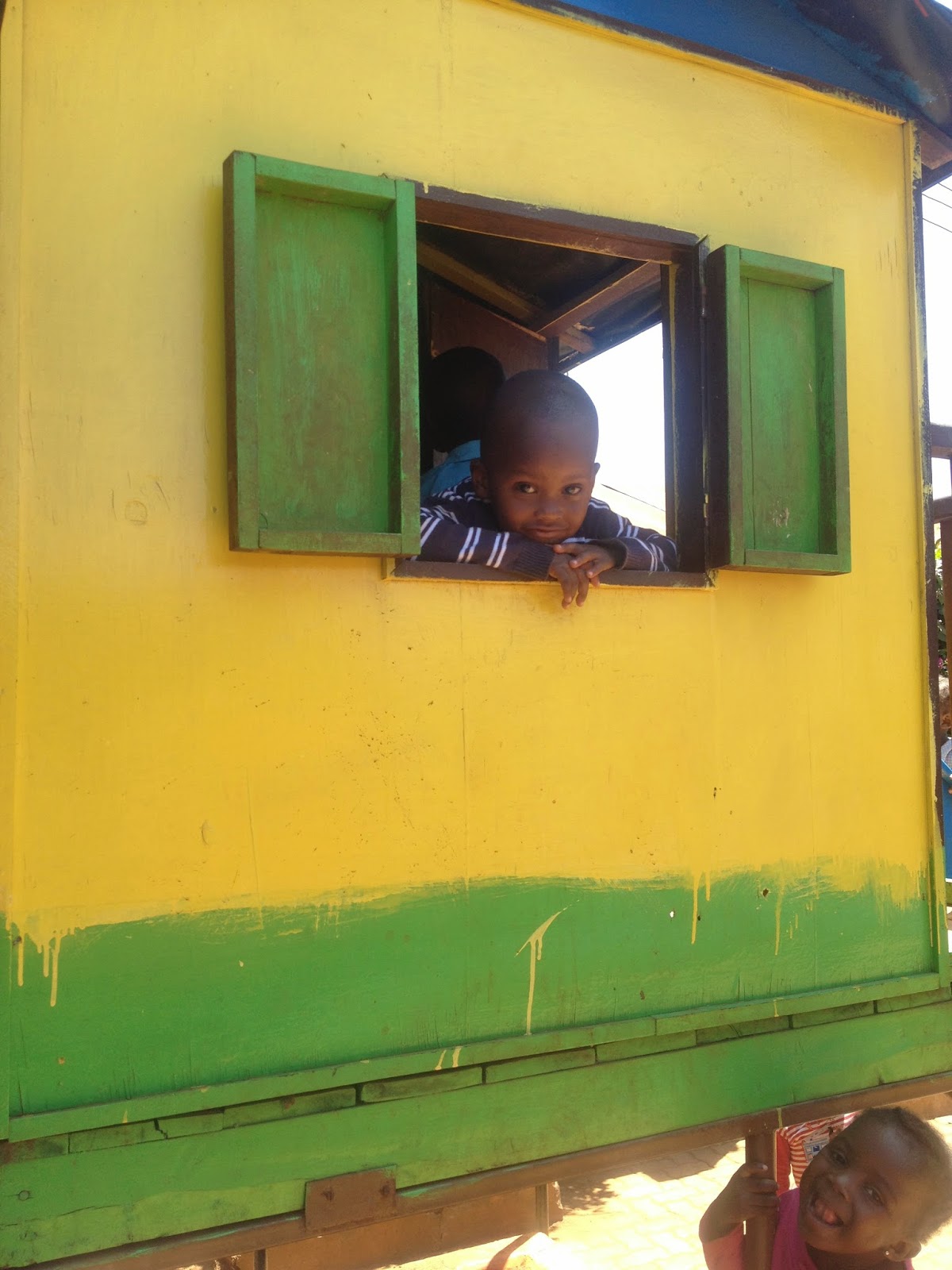
We did a LOT of research the week before we came. Interviewing Kenyans in the SF office, collecting every document about low-cost private early childcare centers & microfranchising (the planned business model for Kidogo), reading a couple of books on Kenyan culture and sifting through all of the information Kidogo has collected since they started last year. But come Friday, I was feeling like there wasn't much more I could learn without getting out in the field: I really needed to verify everything I was reading and hearing before I could start asking deeper questions.

First thing this morning we went to Kidogo's first babycare center in Kibera, which is supposedly one of the world's biggest slums, but it is actually smaller than a few others here in Nairobi. So I suppose it should be called one of the world's most famous slums: it gets more aid per capita than anywhere else in the world. You may know it from the movie & book The Constant Gardner. This causes some problems for a company like Kidogo, who is trying to build a model based on the realities of the economy. At first I was a bit confused: how can it be a bad thing to have more high-quality services? It is rather subtle: another babycare center is opening across the street from Kidogo's Kibera site and is planning to charge less because they will rely on donations from abroad to cover the operating costs not met by the fees charged to parents. It makes it virtually impossible to start a business as a local because the market is so distorted that parents have all sorts of free and heavily subsidized donor-supported centers - and this is not just in childcare, but health, technology and I'm sure all sorts of other sectors. Anyways, Kidogo is setting out to solve this problem.
No comments:
Post a Comment
!dime algo!